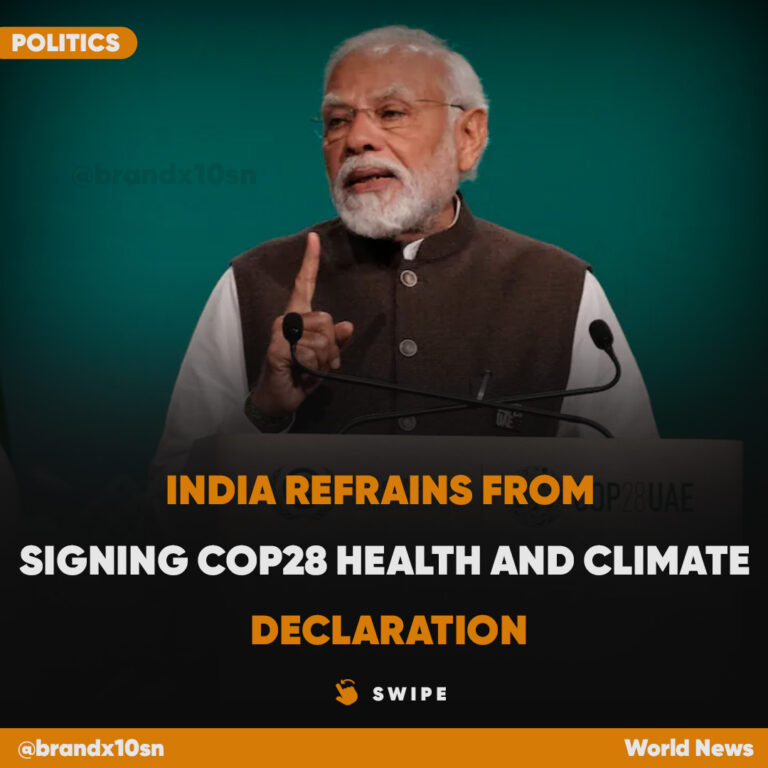
In a surprising move, India chose not to sign the COP28 Declaration on Climate and Health during the recent Health Day event at the 28th UN Climate Change Conference.
While India extended support to the ministerial hosted by the COP28 Presidency, the World Health Organisation, and the UAE Ministry of Health and Prevention, the Indian Health Ministry delegation did not participate in the event.
This decision has raised concerns about India’s commitment to addressing the critical intersection between climate change and global health.
An Unachievable Goal for India’s Healthcare Infrastructure
One of the main reasons for India’s decision not to sign the COP28 Declaration is the practicality of curbing greenhouse gas use for cooling in the country’s healthcare infrastructure.
This measure, which is outlined in the declaration, may not be achievable in the short term due to the challenges within India’s healthcare system.
India, with its significant healthcare challenges, including those worsened by climate change, expressed concerns about how greenhouse gas reduction for cooling in the health sector could hinder the ability to meet the growing demands for medical services, especially in remote and underserved areas.
India’s Commitment to Resilient Health
Despite not signing the COP28 Declaration, India has placed emphasis on resilient health in its G20 declaration.
Under its G20 presidency, India has prioritized building a resilient healthcare system, improving access to medical countermeasures, and facilitating the sharing of digital goods between countries.
India’s focus on resilient health highlights its commitment to addressing the broader impacts of climate change on health and finding sustainable solutions.
The COP28 Declaration underscores the importance of taking a holistic approach to understanding and mitigating the diverse health challenges posed by a changing climate.
It recognizes the need to combat inequalities within and among countries and pursue policies that align with the Sustainable Development Goals (SDGs), particularly SDG3, which aims to ensure good health and well-being for all.
This comprehensive approach seeks to reduce poverty and hunger, improve health and livelihoods, strengthen social protection systems, and ensure access to clean energy, safe drinking water, sanitation, and hygiene.
Promoting Sustainable Practices within the Health Sector
Acknowledging the carbon footprint of health systems, the COP28 Declaration encourages the adoption of sustainable practices within the sector.
This includes assessing greenhouse gas emissions, developing action plans, setting decarbonization targets, and implementing procurement standards for national health systems and supply chains.
By promoting sustainable practices, the declaration aims to contribute to broader climate goals while also addressing the specific challenges posed by climate change to global health.
Concerns about India’s Absence from the List of Signatories
Jess Beagley, Policy Lead for the Global Climate and Health Alliance, expressed concern about India’s absence from the list of countries endorsing the COP28 health declaration.
As one of the leading global emitters and home to a significant portion of the world’s population, India’s decision not to support the declaration raises questions about its commitment to considering the health implications of climate change.
Beagley emphasized the importance of recognizing the impacts of climate change on human health and the opportunities for well-being through climate action.